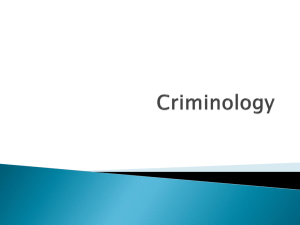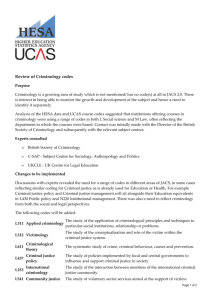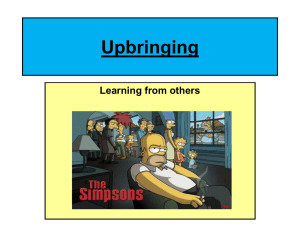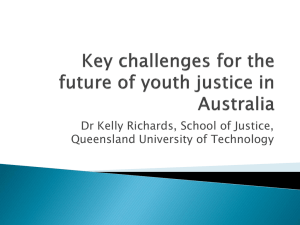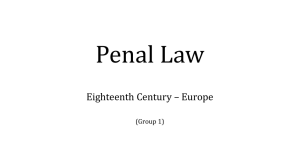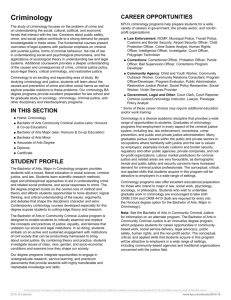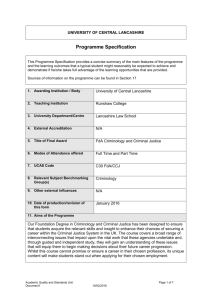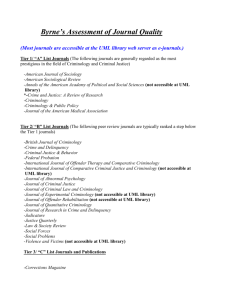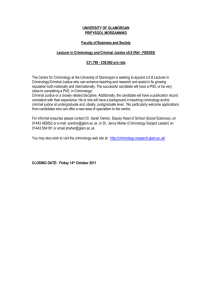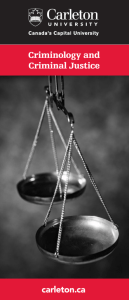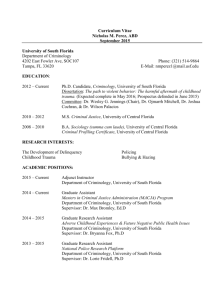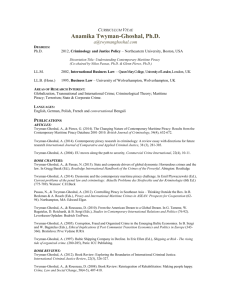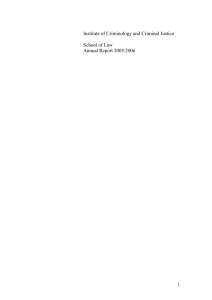Criminology and Criminal Procedures
advertisement
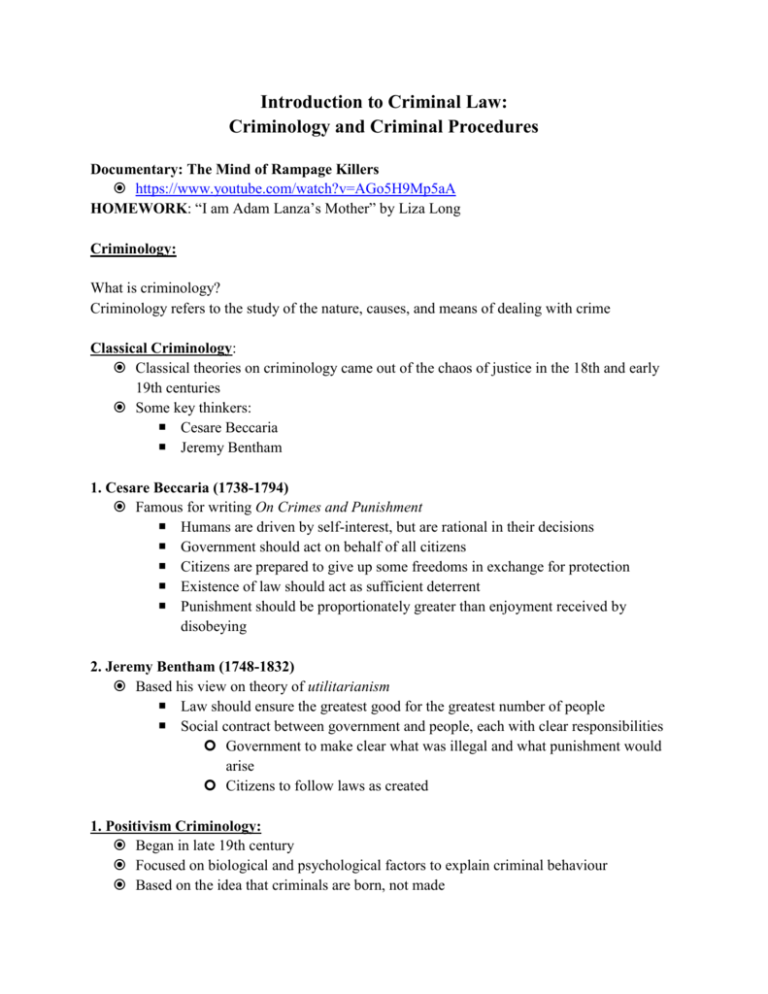
Introduction to Criminal Law: Criminology and Criminal Procedures Documentary: The Mind of Rampage Killers https://www.youtube.com/watch?v=AGo5H9Mp5aA HOMEWORK: “I am Adam Lanza’s Mother” by Liza Long Criminology: What is criminology? Criminology refers to the study of the nature, causes, and means of dealing with crime Classical Criminology: Classical theories on criminology came out of the chaos of justice in the 18th and early 19th centuries Some key thinkers: Cesare Beccaria Jeremy Bentham 1. Cesare Beccaria (1738-1794) Famous for writing On Crimes and Punishment Humans are driven by self-interest, but are rational in their decisions Government should act on behalf of all citizens Citizens are prepared to give up some freedoms in exchange for protection Existence of law should act as sufficient deterrent Punishment should be proportionately greater than enjoyment received by disobeying 2. Jeremy Bentham (1748-1832) Based his view on theory of utilitarianism Law should ensure the greatest good for the greatest number of people Social contract between government and people, each with clear responsibilities Government to make clear what was illegal and what punishment would arise Citizens to follow laws as created 1. Positivism Criminology: Began in late 19th century Focused on biological and psychological factors to explain criminal behaviour Based on the idea that criminals are born, not made nature trumps nurture Generally discredited today Positivism Criminology: Cesare Lombroso (1835-1909) Studied cadavers of criminals Argued that criminals had distinct physical features XYY Theory Chromosomal abnormalities may explain criminal behaviour Debunked when researchers proved idea incorrect 2. Sociological Theory: concentrated on external physical and environmental factors as major contributors to criminal behaviour a) Theory of Anomie Proposed by Emile Durkheim (1858-1917) Argued that as society moved from rural to urban, traditional values and bonds that regulated behaviour were weakened People would turn to crime living in a big city, no longer restrained by norms of society Called this state of isolation “anomie” b) Ecological School Argued that criminal behaviour was encouraged or fostered in certain environments Communities that suffered from high rates of poverty and social disintegration were more likely to condone criminal activity than affluent areas c) Consensus Theory Consensus theorists assume there is a universal definition of right and wrong and that criminal law reflects this consensus Argue that criminal laws prohibit behaviours that society agrees are harmful 3. Contemporary Theories of Criminal Deviance i. Sociology a) Strain theory Argues that people commit crimes when they believe they cannot achieve their desires and goals through legitimate means. The stress of goals of acquiring wealth (success and power), and the means to achieve these goals (education, economic resources) are denied to the economically disadvantaged b) Socialization Suggests the key influences leading to criminal behaviour are found in upbringing, peer groups, and role models ii. Biological – a) Biological Trait Theory Argues that some human traits such as intelligence, personality, chemical and genetic makeup may predispose people to engage in criminal behaviour Research suggests that the following can cause a person to become a criminal Poor diet (“Twinkie Defense”) Influence of hormones (androgens) Exposure to drugs/alcohol in the womb b) Neurophysiological Theory Focus on the study of brain activity and how neurological dysfunctions are connected with criminal activity
